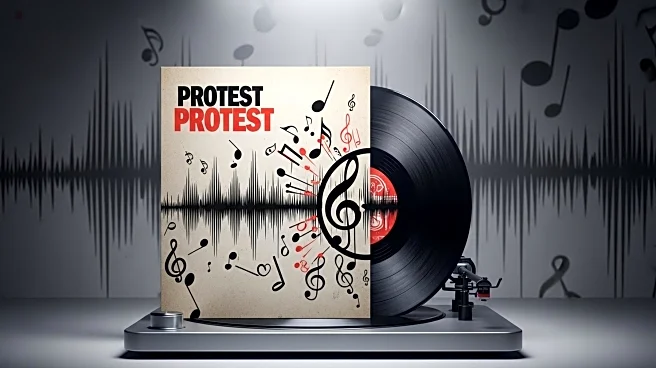What's Happening?
Run For Cover Records, an independent label based in Boston, has announced the removal of its entire catalog from Spotify in Israel. This action is part of their participation in the No Music For Genocide campaign, which protests against what they describe as the ongoing genocide of the Palestinian people by Israel. The label's roster includes artists such as AFI, Angel DuSt, Anxious, Basement, Citizen, Cursive, Fiddlehead, Fury, Narrow Head, One Step Closer, Pelican, Portrayal of Guilt, Rival Schools, and Turnover. The label has submitted a digital takedown specifically targeting the Israeli territory, urging others to join the boycott.
Why It's Important?
The decision by Run For Cover Records to remove its catalog from Spotify in Israel highlights the growing trend of cultural boycotts as a form of protest against political actions. This move could influence other artists and labels to reconsider their presence in regions where they perceive human rights violations. The boycott aims to raise awareness and pressure Israel regarding its policies towards Palestinians. It also reflects the intersection of music and activism, where artists and labels use their platforms to advocate for social and political change.
What's Next?
As Run For Cover Records takes this stand, it may prompt discussions within the music industry about the role of cultural boycotts and their effectiveness. Other labels and artists might follow suit, potentially leading to a broader movement. The label encourages others to join the boycott, which could result in increased pressure on streaming platforms and the Israeli government. The impact on the label's artists and their fan base in Israel remains to be seen, as does the response from Spotify and other stakeholders.
Beyond the Headlines
This action by Run For Cover Records could spark debates about the ethical responsibilities of artists and labels in political conflicts. It raises questions about the balance between commercial interests and moral stances, and how cultural entities can influence public opinion and policy. The boycott also underscores the power of digital platforms in global activism, as music distribution becomes a tool for political expression.











